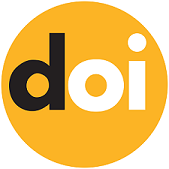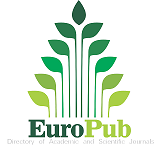Sustainability and Ethics in the Halal Industry
DOI:
https://doi.org/10.58932/MULJ0008Keywords:
Halal Industry, Sustainability, Islamic Ethics, Environmental Protection, Social Responsibility, Supply Chain Transparency, Sustainable Development GoalsAbstract
Halal industry is based on Islamic principles and ethics, which can be an effective tool for promoting sustainability. This research highlights the aspects of environmental protection wise use of resources and social responsibility in the production and delivery of halal products. Halal industry can be presented as a sustainable model due to the increasing global environmental change and depletion of natural resources in the present era the study highlights the use of sustainable sources ecofriendly packaging and ways to reduce carbon emissions in the halal food, pharmaceutical and cosmetic sectors also transparency in the supply chain protection of labor rights and ethical aspects to maintain consumer confidence are also discussed. The research findings show that by integrating the principles of sustainability with Islamic ethics the halal industry can set a global example. This will not only help in environmental protection but also promote social justice and economic stability. This model of halal industry can play a key role in achieving the global Sustainable Development Goals (SDGs).
References
Ahmad, R., & Mohd, S. (2021). Sustainability and Ethics in the Halal Industry: A Conceptual Framework. Journal of Islamic Business Studies, 15(2), 89–104.
Ali, F. (2018). The Halal Economy: An Overview of the Global Market. UK: Palgrave Macmillan.
Halal Development Authority (HDA). (2023). Global Halal Industry. Report
Ghaffar, M. A., Shair, W., Afzal, H., ul Hassan, R., & Bashir, U. (2024). Income and Income Aspiration: Exploring the Impact on Life and Financial Satisfaction. Journal of Economic Impact, 6(3), 257-263.
Halal World Forum. (2024). Trends in Halal Industry Growth. Retrieved from www.halalworldforum.org
Hassan, (2021). Crypto Ledger Technology: Its Role in the Islamic Economy. Journal of Islamic Technology, 5(2), 88–101.
Imran, S. (2023). The rise of ethical e-commerce in the context of Islamic principles and its impact on Muslim consumers. Global E-commerce Trends Review, 12(1), 42–57.
Khan, (2023). The role of digital technologies in Halal product verification. Halal Industry Review, 5(1), 112–130.
Khan, Z., & Yusuf, H. (2020). Integrating Blockchain Technology in the Halal Supply Chain. Journal of Emerging Technologies in Business, 11(3), 45–62.
Mansoori, M. T. (2022). Crypto Ledger in Halal certification: Enhancing trust and transparency. Journal of Islamic Business and Finance, 14(3), 89–102.
Nasir, M., & Pereira, (2019). Halal Food Production and Ethics: A Modern Industry Guide. Wiley.
Rahman, (2022). The Role of Technology in Halal Certification. Proceedings of the International Halal Conference Kuala Lumpur.
Swan, M. (2015). Blockchain: Blueprint for a new economy. O'Reilly Media.
Tapscott, D., & Tapscott, (2016). Blockchain revolution: How the technology behind bitcoin is changing money, business, and the world. Penguin.
Usmani, M. T. (2002). An introduction to Islamic finance. Karachi: Idara Isha'at-e-Diniyat.
World Bank. (2021). Sustainable Development and the Food Industry: Halal as a Model. World Bank Publications.
Zain, M., & Rahman, F. (2020). Global Halal Certification and Digital Solutions. International Journal of Halal Studies, 2(3), 120–135.
Downloads
Published
How to Cite
Issue
Section
License
Copyright (c) 2025 Journal of Halal Ethics and Research

This work is licensed under a Creative Commons Attribution-NonCommercial 4.0 International License.









